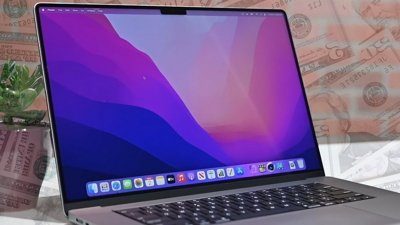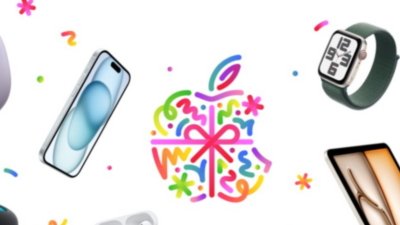Vic Gundotra, vice president of engineering for Google, made the comments during his presentation demonstrating "Froyo," the latest update to the company's Google mobile operating system. He suggested that Google's entrance into the mobile phone market was a move meant to directly oppose the likes of Apple and its tightly controlled iPhone platform.
"If Google did not act, we faced a Draconian future where one man, one company, one device, one carrier would be our only choice," Gundotra said. "That's a future we don't want."
Gundotra was paraphrasing Andy Rubin, CEO of Android Inc. before it was purchased by Google, and current vice president of engineering at the search giant. Gundotra's story earned applause from the crowd as a black-and-white image reading "Not the Future We Want" and "1984" was displayed, clearly referencing Apple without specifically naming the iPhone maker.
"If you believe in openness, if you believe in choice, if you believe in innovation from everyone, then welcome to Android," Gundotra said.
The introduction of the Macintosh was declared with the Ridley Scott-directed "1984" advertisement, which aired during the third quarter of Super Bowl XVII on Jan. 22, 1984. The 60-second TV spot was made for a budget of $900,000 and is considered to be a masterpiece in advertising.
Thursday's comments from Gundotra and Google were just another example of the fallout between it and Apple, as the two companies continue to enter and compete in the same markets. This week, Google announced its entrance into the set-top-box arena, where Apple has been present for years with the Apple TV. Google TV aims to integrate both Web browsing and cable TV into one device running its Android operating system, and will arrive this fall.
Last summer, as both companies continued to enter the same markets, Google CEO Eric Schmidt resigned from the Apple Board of Directors. The removal of Schmidt was seen as necessary as Google and Apple now compete in numerous markets in the technology sector: Google's Android mobile operating system competes with Apple's iPhone; both companies recently made large mobile advertising acquisitions; Google's forthcoming Chrome OS will see the company enter the traditional PC space; and the Chrome browser competes with Apple's Safari.
In March The New York Times reported that Steve Jobs feels Google betrayed Apple by partnering with hardware manufacturers to make cell phones that resemble the iPhone. Jobs also allegedly let his feelings be known to employees at a company meeting in January.
"We did not enter the search business. They entered the phone business," Jobs reportedly said. "Make no mistake, Google wants to kill the iPhone. We won't let them."
Despite the companies differences and the growing rivalry, Jobs was spotted having coffee in public with Schmidt back in March. The two were seen having a chat at a cafe in Palo Alto, Calif.
 Sam Oliver
Sam Oliver














 Wesley Hilliard
Wesley Hilliard
 AppleInsider Staff
AppleInsider Staff
 Andrew Orr
Andrew Orr
 Amber Neely
Amber Neely

 William Gallagher
William Gallagher










431 Comments
Any bets on total comments? I'll go with 420
First post! Woo hoo!!
pot kettle etc.
(honest, we collected that data from open wifi networks completely by accident)
Google said those things with a straight face? The captains of privacy-violators, the sultans of data-collection, the admirals of advertisements. Pshaw.
Work with Apple. Learn what is going on and why. Take it back and duplicate it.
Apple was not very smart here. Google had no where else to go in their minds. Who selects the Board of Directories anyway? And of what use are patients?
Google just bought SimplifyMedia
"Buy 'em out, boys" (Simpsons Reference)